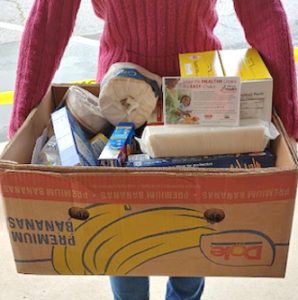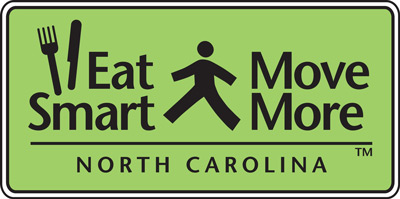 As unemployment surged in North Carolina this spring during the COVID-19 pandemic, so did the demand for food from food banks, food pantries and other emergency sources. Two NC State Extension programs collaborated across the state to make sure that people receiving the food had the information they needed to make safe and healthy meals.
As unemployment surged in North Carolina this spring during the COVID-19 pandemic, so did the demand for food from food banks, food pantries and other emergency sources. Two NC State Extension programs collaborated across the state to make sure that people receiving the food had the information they needed to make safe and healthy meals.
One result: 264 emergency food distribution sites – including food pantries, schools, and churches – were able to tuck 102,000 nutrition card decks into boxes and bags of food for people in need. The card decks contained 12 recipes and nutritional information for healthy main courses.
The decks also included information on preparing and storing fruits and vegetables; on food safety; and how to connect with the programs responsible for creating them: Steps to Health and the Expanded Food and Nutrition Education Program (EFNEP).
Steps to Health, NC State University’s SNAP-Education program, serves those eligible for the federal Supplemental Nutrition Assistance Program. EFNEP is a federal and local partnership providing nutrition education programs for families and school-aged youth with low incomes. NC State collaborates with North Carolina A&T State University to carry out the program in North Carolina.
Both programs work to help their participants make healthy choices within a limited budget and choose physically active lifestyles.
Funding for the project came from the NC Family & Consumer Sciences and Extension & Community Association Foundation, the Extension’s local foods program team, SNAP-Ed, and EFNEP.
Written by Dee Shore and submitted by Jayne McBurney

